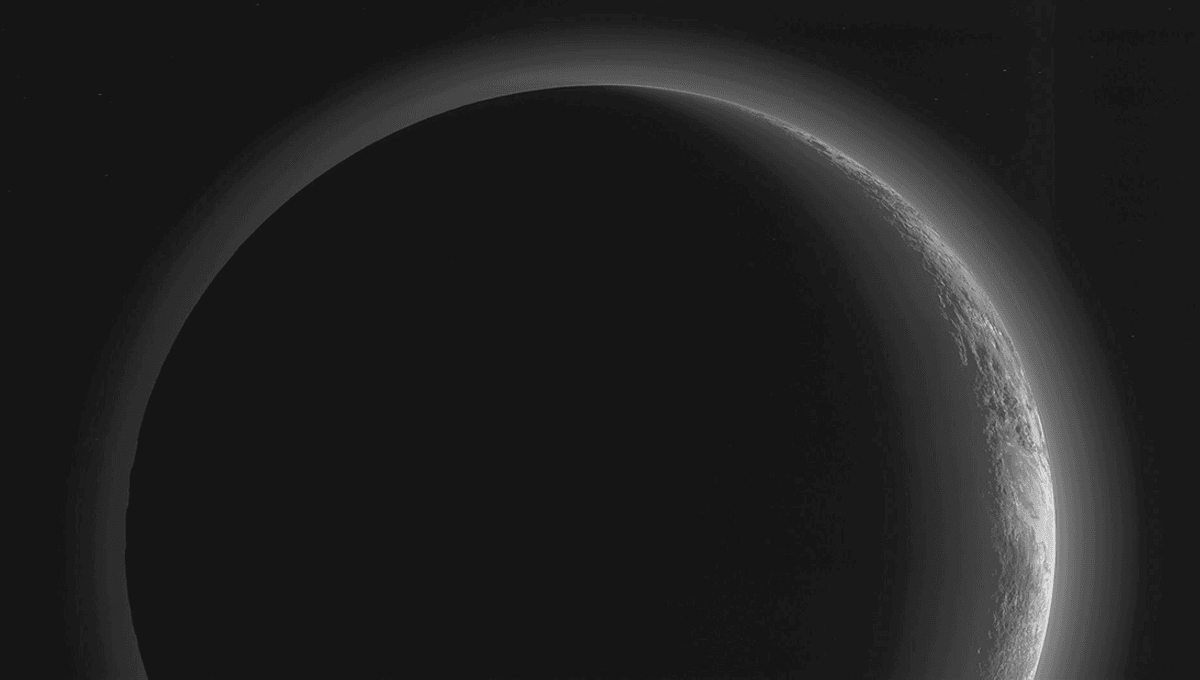
Of the five dwarf planets in the Solar System – including Eris, Ceres, Makemake, and Haumea – Pluto is easily the best-known due to its brief categorization as a regular planet. Long before it could even make one turn around the Sun, it was demoted again.
A surprising number of astronomical bodies have been discovered by observing Uranus. Observing the planet in the 19th century, astronomers noticed that Uranus was moving in unexpected ways, according to the Newtonian theory of gravity. Though the discrepancies were small, there was a difference between the observed orbit of Uranus and the way Newtonian physics predicted its orbit to be.
In 1846, astronomer and mathematician Urbain Le Verrier suggested that an unknown planet beyond Uranus was altering its orbit, and made predictions as to the orbit of this unknown object. The object turned out to be Neptune, but Uranus still had some secrets hidden away up there.
American astronomer Percival Lowell noticed that there were still unexplained movements in the orbit of Uranus, as well as Neptune. In 1905, he suggested these were caused by the pull of another unknown planet, and made predictions as to its orbit.
Based on the predictions from Lowell and other astronomers, Pluto was eventually located in 1930. American astronomer Clyde Tombaugh at the Lowell Observatory in Flagstaff, Arizona looked at areas of the sky where astronomers predicted Pluto would be. He used a blink comparator, a device that quickly flipped between two images of the same area of sky allowing any slight differences to be noticed more easily, and found an object that had moved between January 23 and 29, 1930.
This was soon confirmed to be a planet (for a while, anyway), which was named Pluto by Venetia Burney Phair, an 11-year-old girl who wrote to the Lowell Observatory.
For a time, Pluto sat on diagrams of the Solar System alongside actual planets like Jupiter and Earth. But before Pluto had even spent a plutonian year enjoying its planet status, it was reclassified as a dwarf planet and kicked off our diagrams once more.
The International Astronomical Union (IAU) downgraded Pluto in 2006 as it did not meet all the criteria for what astronomers call a planet. Though it orbits the Sun, and has enough mass to make it into a nearly spherical shape, it does not dominate its own orbit like the actual planets do. Pluto has not tidied up enough of its orbit of other space rocks in order to qualify as a planet, sharing its orbit with other large objects that do not orbit the dwarf planet.
Despite this, it is capable of holding onto moons.
“Pluto is orbited by five known moons, the largest of which is Charon,” NASA explains. “Charon is about half the size of Pluto itself, making it the largest satellite relative to the planet it orbits in our Solar System. Pluto and Charon are often referred to as a ‘double planet’.”
Pluto’s days, though they drag on a bit at around 153 hours, are nothing compared to its years. Pluto’s orbit takes 248 Earth years, meaning it won’t complete its first year since its discovery until Monday, March 23, 2178. Its orbit, as well as being long, is unusual in its elliptical shape and tilt.
“Pluto’s 248-year-long, oval-shaped orbit can take it as far as 49.3 astronomical units (AU) from the Sun, and as close as 30 AU,” NASA explains, with one AU being the distance between the Earth and the Sun. “But on average, Pluto is 3.7 billion miles (5.9 billion kilometers) away from the Sun, or 39 AU.”
“From 1979 to 1999, Pluto was near perihelion, when it is closest to the Sun. During this time, Pluto was actually closer to the Sun than Neptune.”
As interesting as its orbit is, it does mean that the planet was demoted long before it could even celebrate its birthday as a planet – and unless human lifespans increase dramatically in the next few decades, you won’t live to celebrate it either.
Source Link: Pluto Will Complete Its First Full Orbit Since Its Discovery On Monday, March 23, 2178